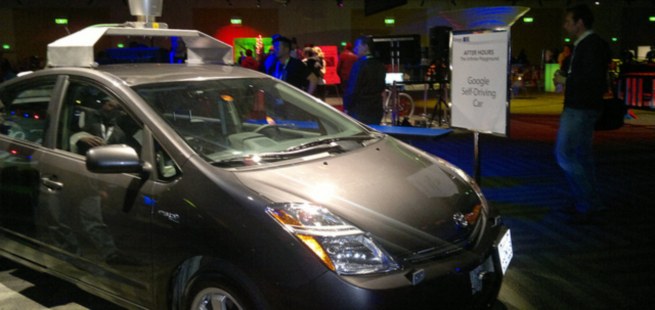We’re one step closer to widespread availability of self-driving cars — at least, if you live in Nevada.
[aditude-amp id="flyingcarpet" targeting='{"env":"staging","page_type":"article","post_id":391872,"post_type":"story","post_chan":"none","tags":null,"ai":false,"category":"none","all_categories":"business,","session":"C"}']The state passed regulations for self-driving cars today that were approved by insurance companies, car manufacturers, police, and others, reports Physorg. The biggest benefactor of the decision will be Google, which debuted its futuristic self-driving cars in late 2010 and lobbied for their use in Nevada last May.
“Self-driving cars have the potential to significantly increase driving safety,” a Google spokesperson said in a statement to VentureBeat. “We applaud Nevada for building a thoughtful framework to enable safe, ongoing testing of the technology and to anticipate the needs and best interests of Nevada citizens who may own vehicles with self-driving capabilities one day.”
AI Weekly
The must-read newsletter for AI and Big Data industry written by Khari Johnson, Kyle Wiggers, and Seth Colaner.
Included with VentureBeat Insider and VentureBeat VIP memberships.
Bruce Breslow, Nevada’s Department of Motor Vehicles director, says the DMV is now figuring out licensing procedures for testing the self-driving cars. The test cars will sport red license plates, Breslow said, while the general public will get green plates when the cars are available.
It’ll likely be a few years before normals folks can get their hands on self-driving cars, but Google previously hinted that they could perform tasks like serving as automated taxis and deliveries.
How good are Google’s self-driving cars? The company dropped a bombshell when it first announced their existence, saying the cars had covered 140,000 miles of driving in California with occasional human control. Seven cars drove over 1,000 miles without any human intervention at all. And that was back in late 2010, by now they’ve likely clocked many more miles on the road.
Thus far, there has only been one reported accident in the public with one of Google’s auto-driving cars, but that was entirely the fault of the less-sophisticated human behind the wheel. Google said in December that it received a patent for its driverless cars, but the company will still face competition from other car manufacturers.
Sebastian Thrun, the director of the Stanford Artificial Intelligence Laboratory and co-inventor of Google’s Street View service, previously said that the company’s goal is to prevent traffic accidents, give people more free time, and reduce carbon emissions by changing the way people use their cars.
Photo via Mac Morrison/Flickr
[aditude-amp id="medium1" targeting='{"env":"staging","page_type":"article","post_id":391872,"post_type":"story","post_chan":"none","tags":null,"ai":false,"category":"none","all_categories":"business,","session":"C"}']
VentureBeat's mission is to be a digital town square for technical decision-makers to gain knowledge about transformative enterprise technology and transact. Learn More

